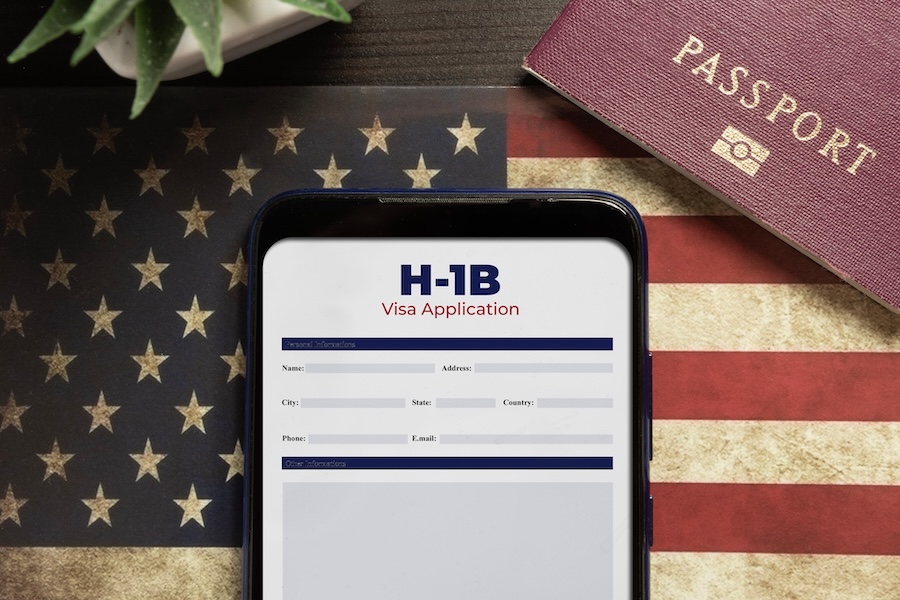In 2025, immigration remains a cornerstone of global societies, shaping economies, cultures, and personal dreams. As nations like the United States, Canada, and European countries refine their immigration frameworks, millions of individuals embark on journeys to new lands, seeking opportunity, safety, or reunion with loved ones. This article explores the latest immigration policies, visa processes, cultural adaptation strategies, and personal experiences of immigrants, offering a blend of practical guidance and heartfelt stories. From stricter U.S. visa vetting to Canada’s welcoming Express Entry system, we dive into what it means to migrate in today’s world.
Immigration Policies in 2025: A Shifting Landscape
The global immigration landscape in 2025 reflects a delicate balance between economic needs, security concerns, and humanitarian obligations. In the United States, immigration policy has taken a stricter turn under recent executive orders, with a focus on enforcement and reduced humanitarian admissions. Executive Order 14159, signed on January 20, 2025, titled “Protecting the American People Against Invasion,” emphasizes border security and authorizes the creation of Homeland Security Taskforces to combat illegal entry and criminal networks. This order also limits humanitarian parole and reevaluates Temporary Protected Status (TPS) programs, affecting over 1.35 million individuals currently under TPS. Immigrants must stay informed about these changes, as they could impact their legal status.
(In contrast, Canada continues to lead with a progressive approach, aiming to welcome 500,000 newcomers in 2025 through programs like Express Entry and the Provincial Nominee Program (PNP). The Express Entry system prioritizes skilled workers based on a Comprehensive Ranking System (CRS), with a cutoff score around 470 points. Canada’s policies reflect a commitment to economic growth and diversity, making it a top destination for professionals and families alike.
(Europe, meanwhile, faces its own challenges. Countries like the United Kingdom and Poland are tightening immigration controls in response to political shifts, while also addressing climate-induced migration. The U.S. is similarly assessing how to handle migrants displaced by environmental disasters in regions like Central America, where hurricanes and droughts have driven many northward. Climate migration is an emerging issue, with no clear global framework yet in place.
(Visa Processes: What You Need to Know
Navigating visa processes in 2025 requires patience, preparation, and precision. In the U.S., the H-1B visa remains a key pathway for skilled professionals, with an annual cap of 85,000 (65,000 regular and 20,000 for master’s degree holders). However, stricter vetting and increased Requests for Evidence (RFEs) have made approvals more challenging. Applicants should provide detailed documentation, including educational credentials and proof of specialized skills, to avoid delays. The Biden administration has streamlined in-country H-1B renewals, but backlogs persist, with over 1 million green card applications pending.
(Family-based green cards prioritize immediate relatives of U.S. citizens, such as spouses and children, but siblings face wait times stretching years. The Diversity Visa Lottery, offering 50,000 green cards annually, opens applications in October 2025 and remains a beacon of hope for those from underrepresented countries. Applicants should double-check eligibility and submit early to avoid technical issues.
(In Canada, the Express Entry system is points-based, rewarding factors like age, education, and language proficiency. Brushing up on English or French can significantly boost your CRS score. The Provincial Nominee Program allows provinces to nominate candidates based on local labor needs, offering an alternative for those who may not qualify for Express Entry.
(Europe’s visa landscape varies by country. The UK has introduced digital nomad visas to attract remote workers, while Germany’s Opportunity Card targets skilled professionals in tech and healthcare. Always verify visa requirements with official government sources to avoid scams.
(Challenges Immigrants Face in 2025
Immigration is rarely a smooth journey. From bureaucratic hurdles to cultural adjustments, immigrants face a range of challenges. In the U.S., the expansion of expedited removal procedures increases the risk of sudden deportation for undocumented individuals, particularly those within 100 miles of the border and present for less than two years. Carrying proof of continuous presence, such as utility bills or lease agreements, is critical.
(Visa delays are another hurdle. Stricter vetting for green cards and visas means longer wait times, with some employment-based petitions taking over two years for PERM labor certification. Working with an experienced immigration attorney can help ensure your application is complete and compliant.
(Cultural and social isolation also poses challenges. Many immigrants struggle to find community in new environments, particularly in rural areas or regions with less diversity. Language barriers exacerbate this, with language proficiency now a key requirement for many visa categories globally. Joining local community groups or language classes can ease this transition.
(“When I moved to Canada from Nigeria, I felt lost at first. The winters were brutal, and I didn’t know anyone. Joining a local soccer club changed everything—I found friends who became my family.” —Chidi Okonkwo, Nigerian immigrant in Toronto
Cultural Adaptation: Building a New Home
Cultural adaptation is a deeply personal yet universal part of the immigrant experience. In 2025, countries are recognizing the importance of integration programs. Canada’s settlement services offer free language training and job placement support, helping newcomers like Chidi find their footing. In the U.S., local governments and nonprofits are stepping up to fill federal gaps, with advocates like councilwomen pushing for expanded aid.
(Practical tips for cultural adaptation include:
Learn the local language: Even basic proficiency opens doors to jobs and social connections. Apps like Duolingo or community language classes are great starting points.
Engage with the community: Attend cultural festivals, volunteer, or join hobby groups to build a support network.
Understand local customs: Research workplace norms, social etiquette, and holidays to avoid misunderstandings.
Seek mental health support: Moving to a new country can be stressful. Many communities offer free or low-cost counseling for immigrants.
Technology also plays a role. In 2025, digital platforms like Expat.com provide resources for cultural integration, from finding housing to understanding local laws. Bookmark trusted websites for reliable information.
(Success Stories: Immigrants Thriving in 2025
Despite challenges, countless immigrants are thriving, contributing to their new homes in profound ways. Take Maria Gonzalez, a software engineer from Mexico who secured an H-1B visa in 2024. After navigating a competitive application process, she now works at a leading tech firm in Silicon Valley.
“The visa process was daunting, but I prepared meticulously. My advice? Triple-check your documents and don’t give up. This country has given me opportunities I never imagined.” —Maria Gonzalez, Mexican immigrant in California
In Canada, Ayesha Khan, a nurse from Pakistan, used the Provincial Nominee Program to settle in Alberta. She now leads a community health initiative, helping other immigrants access care. “Canada welcomed me with open arms, but it was my willingness to learn and connect that made it home,” she says.
These stories highlight the economic impact of immigrants. In the U.S., immigrants earned over $1.5 trillion in 2021 and paid $500 billion in taxes, supporting systems like Social Security. Their contributions in tech, healthcare, and agriculture underscore their role in driving innovation and growth.
(Legal Guidance: Staying Informed and Protected
With policies evolving rapidly, legal guidance is essential. In the U.S., proposed changes under Project 2025 could end protections for Dreamers and TPS recipients, affecting millions. Consult an immigration attorney if you’re concerned about your status.
(Key legal tips:
Know your rights: If approached by ICE, you have the right to remain silent and request an attorney.
(Update your information: Keep your address current with USCIS to avoid missing critical notices.
Stay informed: Follow reputable sources like Bloomberg Government or Verdin Law for policy updates.
(Beware of scams: Only work with licensed attorneys or accredited representatives for legal advice.
For those seeking asylum, stricter screening and longer backlogs are a reality in 2025. File your application promptly and work with a legal advocate to strengthen your case.
(The Human Side of Immigration
Beyond policies and processes, immigration is a human story. For every visa approved or denied, there’s a person chasing a dream. Consider Ahmed, a Syrian refugee who arrived in Germany in 2024. After escaping conflict, he faced a daunting asylum process but found solace in a local integration program that taught him German and connected him with a job in construction.
“I left everything behind, but Germany gave me a chance to rebuild. Learning the language was hard, but it was my bridge to a new life.” —Ahmed Al-Masri, Syrian immigrant in Berlin
Ahmed’s story reflects a universal truth: immigration is about resilience. Whether it’s adapting to Canada’s icy winters or navigating U.S. deportation fears, immigrants show remarkable strength. In 2025, their contributions—economic, cultural, and personal—continue to shape the world.
As policies shift and borders tighten, immigrants must stay proactive. Build a support network, seek legal advice, and embrace your new culture while honoring your roots. The journey may be challenging, but for millions, it’s a path to a brighter future.



















0 Comments